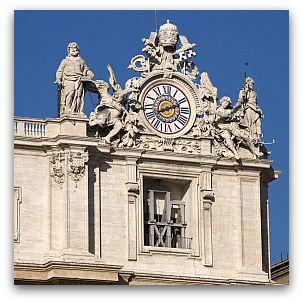By Eureka Street
Pat Power
May 5, 2010
http://www.eurekastreet.com.au/article.aspx?aeid=20866
The current crisis facing the Catholic Church arising out of sexual abuse is arguably the most serious challenge the Church has faced since the Reformation in the 16th century. The response must in the first instance be clearly focussed on the victims of such abuse, their families and other secondary victims. The untold damage done to innocent people and its life-long consequences in many cases need to be clearly and honestly acknowledged. I am pleased where every effort is being made to see that justice is done for those affected and where all possible measures are being taken to bring about healing and reparation.
In responding to sexual and other forms of abuse within the Church it is not enough to concentrate on the sinfulness and failure of those guilty of abuse. It is not just a question of individual repentance but a total systemic reform of Church structures which is needed. An ecclesiastical environment which allowed such aberrant behaviour can no longer be tolerated. Bishop Geoffrey Robinson in his 2007 book Confronting Power and Sex in the Catholic Church "came to the unshakeable belief that within the Catholic Church there absolutely must be profound and enduring change". Hardly a day goes by without me hearing a cry from the heart for such change from people who truly love the Church, young and old, male and female, lay people, priests and religious. During this Year for Priests, many of my colleagues around Australia are crying out for credible leadership from the hierarchy which involves more than mere words. I am certain that these pleas will be heard when the National Council of Priests meets in Parramatta next July.
 |
Yet, people often feel that no one is listening to their concerns. Groups calling for reform are regularly dismissed as trouble-makers with little love for the Church when in fact their hearts are breaking for the Church which they see as drifting further away from the message of the Jesus. Maybe it has taken this present crisis to bring us all to our senses.
In 1996, I gave a talk in which I expressed my hopes for the Catholic Church. They were that it would be
a more human Church
a humbler Church
a less clerical Church
a more inclusive Church (and therefore more truly catholic)
a more open Church
a Church which finds unity in diversity
a Church which discovers its whole tradition
a Church which truly reflects the person and values of Jesus.
I have restated these hopes many times since, including at the Oceania Synod of Bishops in Rome in 1998 in the presence of Pope John Paul II, the future Pope Benedict XVI and my brother bishops. Surely such aspirations are even more pressing today.
The Second Vatican Council (1962-65) called by Pope John XXIII provided so many opportunities for reform by empowering the laity as part of the People of God, engaging with the modern world, other Churches and non-Christian religions, promoting religious freedom, encouraging greater participation in the liturgy, enabling all to have a deeper relationship with God. Unfortunately, these days we are more likely to be warned of the "excesses following Vatican II" or told of the need for "reform of the reform" in regard to the liturgy or the "re-interpretation of Vatican II".
The reform needed by the Church today will involve much more than just "tinkering around the edges". Issues such as the authoritarian nature of the Church, compulsory celibacy for the clergy, the participation of women in the Church, the teaching on sexuality in all aspects cannot be brushed aside. Listening must be a key component of reform and at times that will involve listening to unpalatable truths. It needs to be recognised that all wisdom does not reside exclusively in the present all male leadership of the Church and that the voices of the faithful must be heard.
At Easter I pointed out that it was largely Jesus' female disciples who stood by him dying on Calvary, that Mary Magdalene was the first witness to the resurrection and that she could legitimately be called an apostle in that she was sent to bring the good news to the other followers of Jesus. I wondered aloud if the Church would be in its present state of crisis if women had been part of the decision-making in the life of the Church.
There may be people who question the views I am espousing, but I wish to re-state that there is a whole body of faithful Catholics who are saying "enough is enough" and that we all need to grasp this opportunity to enable the Church to be its best self in bringing the message of Jesus to its own adherents and to the wider society.
Any original material on these pages is copyright © BishopAccountability.org 2004. Reproduce freely with attribution.